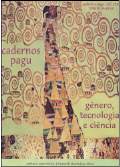Resumo
Resumo
Resultados de pesquisa relatados na literatura internacional sobre mulheres na ciência têm constantemente apontado que elas tendem a ser subrepresentadas e menos produtivas que os homens. Isto tem sido contestado e explicado em análises originadas quase que exclusivamente dos países avançados. A pesquisa aqui relatada analisa, a partir de dados quantitativos, a participação das mulheres no corpo docente e na produção científica de quatro institutos da Unicamp. Ainda, através de entrevistas, buscam-se explicações para o quadro descrito pelos indicadores quantitativos. O argumento geral é que padrões de produção científica são socialmente construídos e nesse caso eles evidenciam as construções sociais de gênero na academia.
Abstract
Women are known to be underrepresented in scientific professions and systematically found to be less productive than men, according to evidence from numerous studies in advanced countries. The study reported here aims to test the validity of such assumptions in the University of Campinas. The authors studied women working in four areas: biology, chemistry, physics and social sciences. The article argues that scientific production is socially constructed and that it incorporates the very conditions of their constitution, in this case of gender in academia. The trends we found are similar to those in advanced countries, although some of the explanations refer to particular aspects of Brazilian reality.
Referências
ACKER, Sandra. New perspectives on an old problem: the position of women academics in British higher education. Higher Education, nº 24, 1992, pp.57-75
ALDHOUS, Peter. Germany: the backbreaking work of scientisthomemakers. Science, vol. 263, marz 1994, pp.1475-1477
BARINAGA, Marcia. Overview: surprises across the cultural divide. Science: women in science 94. vol. 188, may 1975, pp.796- 802.
BAYER, Alan E. & ASTIN, Helen S. Sex differentials in the academic reward system. Science, vol. 188, may 1975, pp.796-802.
CLEMENTE, Frank. Early career determinants of research productivity. American Journal of Sociology 79(2), 1973, pp.409-419
COLE, Jonathan R. Fair science: women in the scientific community. New York, Columbia University, 1979/1987, 336 p.
Diretório de Grupos de Pesquisa 1996, CNPq Homepage.
ENTWISLE, Doris R.; ALEXANDER, Karl L. e OLSON, Linda S. The gender gap in math: its possible origins in neighborhood effects. American Sociological Review. vol. 59, dec. 1994, pp.822-838
ETHINGTON, Corina A. e WOLFE, Lee M. Women's selection of quantitative undergraduate fields of study: direct and indirect influences. American Educational Research Journal, 25(2), 1988, pp.157-178.
ETZKOWITZ, Henry e outros. The paradox of critical mass for women in science. Science 266(5182), oct. 1994, pp.51-54.
ETZKOWITZ, Henry et alii. Barriers to women's participation in academic science and engineering. In: PEARSON, Willie and FECHTER, Alan. Who will do science?: educating the next generation. Baltimore, The Johns Hopkins University Press, s.d.
JACOBS, Jerry A. Gender and academic specialties: trends among recipients of college degrees in the 1980's. Sociology of Education, vol. 68, abril de 1995, pp.81-96.
LEÓN, Elena & VELHO, Léa. La participación de la mujer en el mundo académico: existen barreras?. II Jornadas Latinoamericanas de Estudios Sociales de la Ciencia y la Tecnología (ESOCITE'96). Caracas, Venezuela, 9-11 setiembre de 1996.
LEWIN, Arie & DUCHAN, Linda. Women in academia: a study of the hiring decision in departments of physical science. Science, vol. 173, 1971, pp.892-895.
LONG, Scott J. The origins of sex differences in science. Social Forces 68(4), jun 1990, pp.1297-1315.
MOORE, Kathryn M. Women's access and oportunity in higher education: toward the twenty-first century. Comparative Education. 23(1), 1987, pp.23-33.
ROSSITER, Margareth W. The Mathew-Matilda effect in science. Social Studies of Science, vol. 23, 1993, pp.325-341.
Science and Engineering Indicators 1996, National Science Foundation Homepage
STIRATI, A. e CESARATTO, S. The italian Ph.D ten years on: educational, scientificic and occupational outcomes. Higher Education, vol. 30, pp.37-61
SUTHERLAND, Margareth. Women in higher education: effects of crises and change. Higher Education, nº 17, 1988, pp.479-490.
U.S. Congress, Office of Techmology Assessment. Educating Scientists and Engineers: Grade School to Grad School OTA-SET-377, Washington, DC Government Printing Office, June 1988, p.72
World Science Report 1996. Dijon, France, UNESCO Publishing, 1996.

